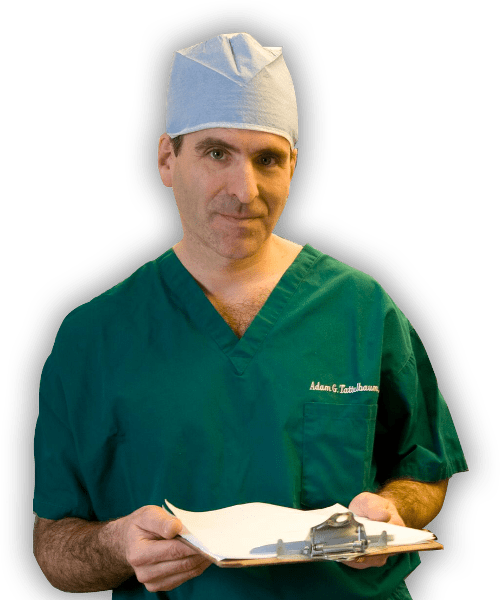Botox in Rockville, Maryland
Dr. Adam Tattelbaum offers Botox treatments for patients in Maryland, Northern Virginia and Washington DC, from his offices in Rockville, MD, and Mclean, VA.
Book a free consultation with Dr. Tattelbaum to learn more.
A word from the Doctor…
We sell Botox by the unit. Some practices sell by the area treated instead. I prefer the unit approach because patients know exactly how much they are getting and can add more as needed without repeating the cost of an entire area.
When sold by the area, patients don’t always know how much they are getting. If Botox is diluted and sold by the area, the result may not be satisfactory or last as long. We use a very concentrated Botox solution which lends itself to more precise placement, better function and lower risk.
If you’re ready to explore the transformative benefits of Botox, let’s set up a consultation. I’m here to guide you every step of the way.”
Written by Dr. Adam Tattelbaum, M.D.

- Double board-certified Maryland plastic surgeon
- Member of the American Society of Plastic Surgeons
- Member of the American Society for Aesthetic Plastic Surgery
- Listed in “America’s Top Surgeons” by the Consumer Research Council of America
What is Botox?
Botox can be used in small doses for more than just smoothing facial wrinkles. It’s also used to treat other health issues, like excessive sweating, chronic migraines, muscular disorders, and overactive bladders.
Botox treatment areas
Botox is commonly used to treat:
- Forehead lines: dynamic facial expressions and repeated muscle movements cause horizontal lines on the forehead. We use Botox to relax the muscles, smoothing the lines and giving a youthful appearance. Anywhere between 10-30 units is common for this area of the face.
- Frown lines (Glabellar lines): regularly furrowing the eyebrows leads to the formation of vertical lines between the eyebrows. Botox softens these lines, providing a relaxed and rejuvenated look. Frown lines are usually treated with 10-25 units.
- Eyebrow lift: if your eyebrows are droopy or low-hanging, Botox treatments can help lift them, giving you a more youthful appearance. An eyebrow lift will typically require 2-5 units.
- Crow’s feet: the delicate skin around the eyes is prone to wrinkles due to smiling, laughing, and squinting. Botox gently reduces these lines, revealing a more youthful and refreshed appearance. Anywhere between 5-15 units per side is normal.
- Bunny or nasalis lines: smiling or scrunching the nose can cause lines to appear on the sides of the nose. Botox addresses these lines, creating a smoother and more refined nose area. Bunny lines generally require 5-10 units.
- Smile lift: some individuals naturally show more of their gums when they smile, causing self-consciousness. Botox assists in minimizing the gum visibility, creating a more balanced and confident smile. This can take 3-6 units.
- Dimpled chin: a small amount of Botox injected into the chin area can help reduce the appearance of a double chin and give the skin a smoother, tighter look. This can take 2-6 units.
Botox recovery
There’s no significant downtime or recovery process after a set of botox injections. But you should follow these recommendations to maximize your results and ensure a comfortable experience:
- Take it easy: Avoid strenuous physical activities and exercise for at least 24 hours post-treatment.
- No rubbing or massaging: Refrain from touching the treated areas to prevent the spread of Botox to unintended muscles.
- Stay upright: Maintain an upright position for at least 4 hours after the procedure to ensure optimal Botox absorption.
- Avoid alcohol: Steer clear of alcohol for 24 hours, as it may increase the risk of bruising.
- Cold compress: If you experience slight swelling or redness, apply a cold compress gently to the treated areas.
- Don’t sleep on the treated areas: Avoid sleeping directly on the treated areas for the first night after the procedure.
- Stay out of the sun: Protect your skin from direct sunlight and avoid tanning beds for a few days post-treatment.
Frequently asked questions
How long does Botox last for?
Generally, botox wears off after a few months and can be repeated. While it is not permanent, repeated use may give longer-lasting results because the muscles treated will continue to weaken over time.
There is a rare patient who may build up resistance. These patients may benefit from other toxins instead.
How long does it take for Botox to work?
Changes can be noticed in about 3 days, but it usually takes about 7 days for full effect. We use a very concentrated botox solution which lends itself to more precise placement, better function and lower risk.
How does Botox work?
What can I expect during the treatment?
Typically, each botox treatment session lasts around 15 to 20 minutes. While some practitioners may use a topical anesthetic beforehand, it is not always necessary. However, if you have a low pain tolerance or sensitive skin, we can discuss numbing the area before treatment. You might experience a slight pinch from the fine needle as the Botox™ is injected directly into the muscle.
How do I prepare for my Botox injection?
To prepare, inform your doctor about any medications or supplements you are currently taking to avoid potential interactions.
Then, refrain from consuming blood-thinning medications or substances like aspirin and alcohol for a few days before the procedure to reduce the risk of bruising.
Finally, don’t hesitate to ask questions you may have about the procedure or aftercare.
Is Botox safe?
What are the side-effects of Botox?
- Pain
- Tenderness
- Swelling and bruising at the injection site.
Location
We have two offices – one in Rockville, MD, and one in McLean, VA. Most of our patients come from Maryland, northern Virginia and Washington DC.
Schedule a free consultation
If you’re interested in Botox treatment, the next step is to schedule a consultation with Dr. Tattelbaum.
The consultation lasts for roughly one hour. In the consultation, Dr. Tattelbaum will evaluate your health and starting situation, discuss your medical history, and answer any questions. Plus, we’ll cover the risks, benefits, and alternative options.

